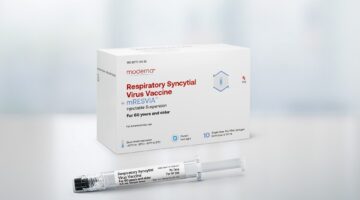On Friday, the Food and Drug Administration approved the first biosimilar, marking an initial big step foward in changing the climate of the drug market in the United States.
Time to save some money.
Zarxio, produced by Sandoz, Inc. – a division of Novartis, is a drug that is designed to help the body produce white blood cells in cancer therapy. The drug, which was approved in Europe in 2009, resembles Neupogen, or filgrastim.

Using Informed Awareness to Transform Care Coordination and Improve the Clinical and Patient Experience
This eBook, in collaboration with Care Logistics, details how hospitals and health systems can facilitate more effective decision-making by operationalizing elevated awareness.
“The F.D.A. approval of Zarxio marks a significant milestone for the United States health care system,” said Carol Lynch, Global Head of Biopharmaceuticals and Oncology Injectables at Sandoz, according to The New York Times.
The Times spelled out what biosimilar availability could mean for Americans financially:
Biosimilars are about a third cheaper than brand-name biologic drugs, on average, in countries where they are in use according to Express Scripts, the nation’s largest manager of prescription drug benefits. Some experts say the discounts could be much steeper, up to 90 percent.
Express Scripts estimates that the introduction of Zarxio in the United States could save $5.7 billion in drug costs over the next 10 years. It estimated that $250 billion in drug costs could be saved over the next decade if 11 biosimilars in development were approved.
“This is the first approval for low cost alternatives to biological drugs,” Ronny Gal, a senior research analyst who focuses on specialty pharmaceuticals at Sanford C. Bernstein & Company, told The Times in an email. “It will reasonably allow for reduction of cost in older cancer care drugs, clearing room in the budgets for new breakthrough cancer agents.”

A Deep-dive Into Specialty Pharma
A specialty drug is a class of prescription medications used to treat complex, chronic or rare medical conditions. Although this classification was originally intended to define the treatment of rare, also termed “orphan” diseases, affecting fewer than 200,000 people in the US, more recently, specialty drugs have emerged as the cornerstone of treatment for chronic and complex diseases such as cancer, autoimmune conditions, diabetes, hepatitis C, and HIV/AIDS.
Transition is officially underway!
[Photo from Flickr user peaceful-jp-scenery]












